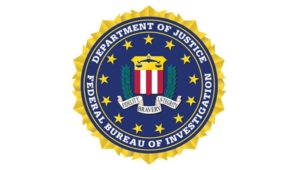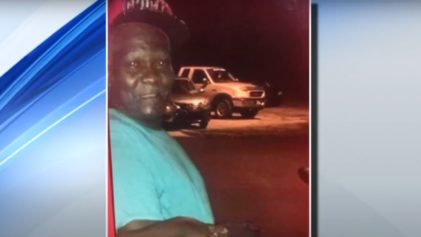
These domestic extremist groups remain vibrant in police departments and other law enforcement agencies, as The Intercept reported. A classified FBI Counter Terrorism Policy Guide from April 2015, obtained by The Intercept, revealed that “domestic terrorism investigations focused on militia extremists, white supremacist extremists and sovereign citizen extremists often have identified active links to law enforcement officers.” The white supremacist presence among the police is not a new problem, yet it is one that is not being publicly addressed. With no uniform national standards governing the nation’s 18,000 law enforcement agencies, many with a long history of racism, white rightist groups have fertile ground to expand their influence.
In light of this open attempt to further co-op law enforcement, Black officials are speaking out. As The Washington Post reported, Angelia Williams Graves, a Norfolk, Va., councilwoman, told a crowd at an NAACP luncheon last October that modern racists have “taken off their white hats and white-sheeted robes and put on police uniforms. Some of them have put on shirts and ties as policymakers and some of them have put on robes as judges.”
“I know I could never change the condition from the outside. I had to go for the inside,” Col. K.L. Williams, the Black chief of police in Kinloch, Mo., said at a CNN town hall meeting last July. “If you think that racism and white supremacy is not involved in police departments, you better check yourself. Because the KKK has been involved with law enforcement from when it just about started,” he continued.
For over a decade, the federal government has monitored white hate groups in policing. A redacted internal FBI report released in 2006 shows the inroads made by these groups in law enforcement is a concern because of the access they may gain to elected officials and protected persons as potential targets for violence and restricted areas vulnerable to sabotage. “The intelligence acquired through the successful infiltration of law enforcement by one white supremacist group can benefit other groups due to the multiple allegiances white supremacists typically hold,” according to the report. Recruitment and infiltration by these groups also jeopardizes the safety of law enforcement personnel and sources, the report added.
Similarly, the Department of Homeland Security issued a 2009 report on the rise of right-wing extremism, declaring that “lone wolves and small terrorist cells embracing violent right-wing extremist ideology are the most dangerous domestic terrorism threat in the United States.” The DHS report found that white extremists were capitalizing on the economic downturn and the election of the first Black president. Further, these groups were focusing their efforts on recruiting new members, mobilizing existing members and using propaganda to broaden their reach and appeal, “but they have not yet turned to attack planning.” Under pressure from conservatives, then-DHS Secretary Janet Napolitano was forced to distance herself from the report and its domestic terrorism unit was gutted.
As sobering as it may be for some to understand that the KKK, skinheads and neo-Nazis are organizing in sheriff’s departments, police departments and other agencies, white supremacists have had hundreds of years of experience in policing. From their inception, the police were designed to maintain white supremacy, protect white society and suppress Black people. Slave patrols, the militias of white men that maintained the plantation police state and kept Black people enslaved, were the first police force in America. These patrols, which consisted of white male slave masters and non-slaveholders alike, were created to enforce the Southern slave codes and prevent slave rebellions. According to Professor Carl T. Bogus of the Roger Williams University School of Law, these militias fell under the Second Amendment. This was an assurance to the South that Congress would not disarm their slave patrols, which could have resulted in an unraveling of the slavery police state and the dreaded institution itself. Most Southern white men were obligated to serve as slave catchers at some point in their lifetime.
Meanwhile, the Ku Klux Klan has a long history in law enforcement. The oldest of America’s hate groups, according to the Southern Poverty Law Center, the KKK began as a vigilante group formed to intimidate Southern Blacks and the white people who helped them following the Civil War. The FBI report noted that the KKK is particularly known for its historical support in many communities, which translates into ties with local police. Further, for police officers in Jim Crow Southern states such as Florida, joining the Klan was like becoming a member of the Fraternal Order of Police, as The Root reported.
As a result of the pervasiveness of the Klan in Southern police forces, law enforcement participated in crimes against Black people and civil rights workers. One prime example was the 1964 murders of civil rights workers James Chaney, Andrew Goodman and Michael Schwerner in Mississippi, in which Neshoba County law enforcement and the KKK conspired to kill the three men. Similarly, many of the sheriff’s deputies who participated in the brutality on the Edmund Pettus Bridge in the 1965 march from Selma to Montgomery were KKK members, according to civil rights movement veterans groups.
Law students who work with the Cold Case Justice Initiative , a Syracuse University program that investigates unsolved racially motivated murders from the civil rights era (1946 to 1969), learned that many of the police officers were members of the KKK and other white supremacist organizations. One of the Klan’s first orders was to infiltrate the police department “because the laws don’t apply to them if they are the law,” as Fusion reported.
The FBI infiltrated the Klan and knew of its close working relationship with law enforcement in the South. “[W]e infiltrated the Klan in many ways. We had female informants. … And we had police officers that were informants for us,” the FBI website states. The FBI, the largest law enforcement body in the country and a federalized policing institution, has its own horrible history on race. Founding director J. Edgar Hoover’s COINTELPRO program was a war on Black people in that it was designed to disrupt and neutralize Black leaders and organizations and “prevent the rise of a ‘messiah’ who could unify and electrify the militant Black nationalist movement.”
The FBI today still maintains racist practices and engages in racial profiling. The Intercept found that the bureau has wide latitude in using racial and religious profiling in targeting suspects. Despite the Obama administration’s purported racial profiling ban in federal agencies, the FBI kept its own racial profiling practices virtually untouched and uses race, ethnicity, nationality and religion in determining which people and communities to investigate. The Intercept noted that the FBI targets entire communities based on sweeping generalizations and stereotypes of a racial or ethnic group, rather than evidence of criminal activity.
The epidemic of white supremacists in law enforcement takes on new meaning now that President Trump is in office. As a politician that rose to power through a white nationalist platform and was endorsed by white nationalist and other white terrorist groups, Trump has shied away from addressing right-wing extremists. Already, he plans to revamp a program called “Countering Violent Extremism” by renaming it “Countering Islamic Extremism” or “Countering Radical Islamic Extremism,” according to Reuters. The program will no longer target all violent ideologies including white supremacists that carry out acts of violence but will focus solely on radical Islamic groups.
As a “law and order” president who has decried the “dangerous anti-police atmosphere in America,” Trump has selected Jeff Sessions as his attorney general, a man who is hostile toward Black people. The reaction of one former Klan leader speaks volumes:
Thank God after 8 horrible years of black radical Marxists we finally have an AG who will defend decent American people – rather than thugs. https://t.co/fsxQHghD55
— David Duke (@DrDavidDuke) February 9, 2017
Law & Order, welcome back…??#GOODNEWS #AmericaFirst #MAGA pic.twitter.com/q5MozT0wMv
— David Duke (@DrDavidDuke) February 9, 2017
After 8 years of Holder and Lynch radicalism – an Attorney General defending the law-abiding people rather than criminals, thugs & illegals!
— David Duke (@DrDavidDuke) February 9, 2017
This makes it highly unlikely the Trump administration will address white supremacists wearing blue uniforms.


